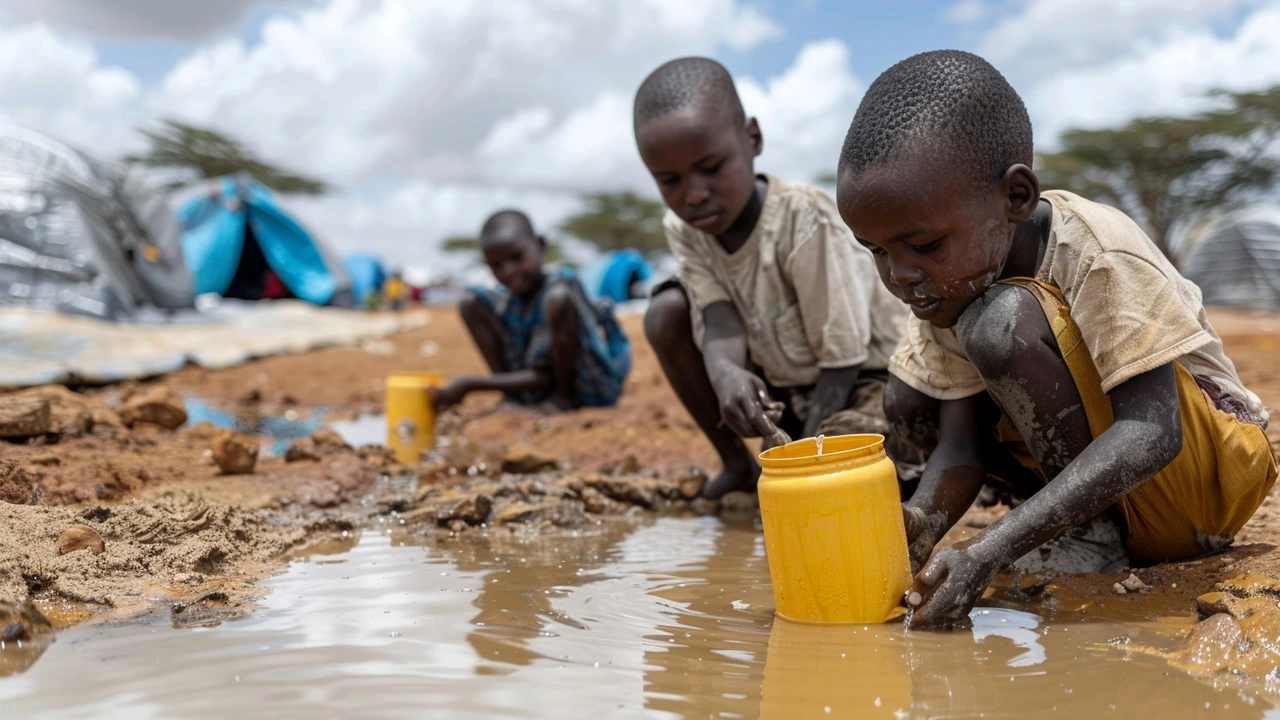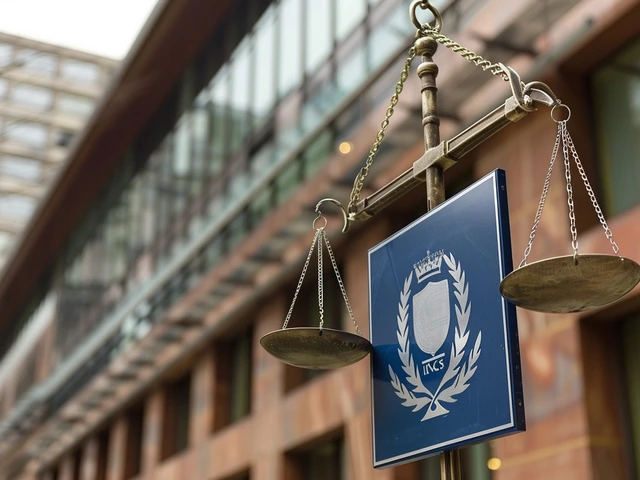NCDC Warns of Worsening Cholera Outbreak: 30 Lives Lost as Cases Rise

NCDC Issues Urgent Warning as Cholera Cases Surge Across Nigeria
The Nigeria Centre for Disease Control and Prevention (NCDC) has sent out a stark warning about the escalating cholera outbreak engulfing various parts of the country. As of June 11, 2024, the NCDC reported a staggering 1,141 suspected cholera cases with 65 confirmed, culminating in 30 fatalities across 96 Local Government Areas (LGAs) in 30 states since the beginning of the year. This alarming trend is exacerbated by the ongoing rainy season, which has seen an uptick in cholera cases.
The Toll of the Outbreak
Concentrated primarily in 10 states—Bayelsa, Zamfara, Abia, Cross River, Bauchi, Delta, Katsina, Imo, Nasarawa, and Lagos—the outbreak has disrupted the daily lives of many. The majority of these states report the lion’s share of cases. Lagos, one of Nigeria's most populous states, has recently reported an outbreak further complicating the situation. The impact on these regions cannot be overstated, as families are grappling with the deadly consequences of this water and food-borne disease.
Understanding Cholera
Cholera, caused by the bacterium Vibrio cholerae, is often contracted through the ingestion of contaminated water and food. Symptoms can be severe, including acute profuse watery diarrhea, vomiting, and fever which can lead to rapid dehydration and even death if untreated. The disease primarily affects areas where access to clean water and adequate sanitation is limited, making it a significant threat in countries with underdeveloped infrastructure and health services.
High-Risk Areas and Prevention
The NCDC has emphasized that the prevention and control of cholera revolve around ensuring safe drinking water, proper sanitation, and good hygiene practices. Communities especially vulnerable to cholera are those with inadequate waste disposal systems and poor sanitation facilities. For individuals, the risk is heightened if they consume food exposed to these unhygienic conditions.
Measures and Collaborative Efforts
A multi-sectoral National Cholera Technical Working Group is actively aiding affected states. This group consists of Federal Ministries of Environment and Water Resources, the National Primary Health Care Development Agency (NPHCDA), the World Health Organization (WHO), the United Nations Children’s Fund (UNICEF), and other key partners. Their collaborative efforts are anchored on several initiatives such as risk communication, active case searches, laboratory diagnoses, case management, and the provisioning of necessary response commodities. Additionally, Water Sanitation and Hygiene (WASH) interventions are underway, aiming to rectify long-standing issues in the most affected regions.
Wider Implications and State Government Actions
The NCDC has called on state governments to ramp up efforts in tackling the root causes of cholera outbreaks. There is an urgent need for implementing solutions that guarantee access to safe drinking water, effective waste management systems, and rigorous hygiene standards. These actions are not merely immediate fixes but long-term strategies to prevent future outbreaks and reduce the burden of waterborne diseases.
The outreach extends to educating the public, with awareness campaigns being a cornerstone of these efforts. Cholera awareness jingles in both English and local languages are being disseminated to inform communities about preventive measures and early symptoms to watch out for, which can significantly aid in early detection and treatment, potentially saving countless lives.
Looking Ahead
While the current scenario remains dire, the coordinated response from national and international health bodies provides a glimmer of hope. Tackling cholera requires both immediate response and long-term commitment to improving the structural issues surrounding water and sanitation in Nigeria. Enhanced surveillance, better infrastructure, and sustained community awareness will be critical in the fight against this devastating disease.
The stakes cannot be higher as the rainy season continues to pose threats, creating a fertile ground for cholera to thrive. The journey ahead is challenging, but with concerted efforts and unwavering commitment, there is hope that Nigeria can overcome this public health crisis and build a resilient health system capable of protecting its citizens from such outbreaks in the future.






joy mukherjee
June 14, 2024 AT 18:17My heart goes out to the families who have lost loved ones 😔. It's terrifying how quickly cholera can spread when clean water is scarce. I hope the awareness campaigns actually reach the remote villages where they're needed most. Please stay safe and keep supporting the local health workers.
Rob Chapman
June 22, 2024 AT 04:17Think of this as a reminder that health is a communal garden we all tend to together. When one patch wilts, the whole field feels the drought. Let’s keep sharing knowledge and resources.
Delaney Lynch
June 29, 2024 AT 14:17It’s commendable that the NCDC is issuing warnings, but warnings alone won’t stop the tide of infection, especially in densely populated Lagos where sanitation lapses are frequent, and the monsoon rains exacerbate the problem, creating breeding grounds for Vibrio cholerae, the bacteria behind cholera. The bacteria thrives in contaminated water, and when people drink from unsafe sources, the disease spreads rapidly, leading to severe dehydration, vomiting, and, in worst cases, death. We have already seen this tragic reality with the loss of thirty lives, which underscores the urgency for coordinated action. The multi‑sectoral Cholera Technical Working Group is a step in the right direction, yet more resources are needed on the ground, including portable water treatment units, rapid diagnostic kits, and trained health volunteers. Community education must go beyond jingles and include hands‑on training for proper hand‑washing, waste disposal, and safe food preparation. Local leaders should be empowered to monitor water sources, report suspected cases, and enforce hygiene standards. NGOs can supplement government efforts by providing clean water tanks, chlorine tablets, and logistical support for remote clinics. Donors should consider funding long‑term infrastructure projects that improve piped water supply and sewage systems. Schools can incorporate WASH curricula to teach children early habits. Each citizen has a role to play by boiling water, using safe storage containers, and seeking treatment at the first sign of symptoms. By doing so, communities can create a shield against future outbreaks. Rapid response teams must be ready to deploy in hotspots as soon as cases are identified. Data collection and surveillance need to be strengthened to track the spread in real time. Public‑private partnerships can accelerate the delivery of essential supplies. Finally, sustained political will is crucial to maintain momentum beyond the rainy season. Together, a coordinated effort can curb the current surge and prevent future epidemics.
Nicholas Mangraviti
July 7, 2024 AT 00:17Great points, especially on data surveillance. Let’s keep the focus on swift action.
Jared Greenwood
July 14, 2024 AT 10:17This is a clear failure of local governance and systemic neglect!
Sally Sparrow
July 21, 2024 AT 20:17The numbers are alarming, and the response so far feels half‑hearted. It’s not enough to issue warnings without delivering clean water infrastructure. Communities are suffering, and the loss of thirty lives is a stark reminder of the stakes. We need accountability from state officials and a faster rollout of WASH projects. Otherwise, the cycle repeats.
Eric Yee
July 29, 2024 AT 06:17Totally feel you, the lag is frustrating. Gotta push for real resources, not just talk. Let’s keep shouting until they act.
Sohila Sandher
August 5, 2024 AT 16:17i think the awareness jingles are cool but need more than vibes, real access to clean water is key. many folks still rely on wells that are dirty. we should see more community‑run filters and simple tech. hope the govt steps up pronto.
Anthony Morgano
August 13, 2024 AT 02:17Exactly! 😃 Community filters can make a massive difference, especially when paired with good hygiene habits. Keep spreading the word!
Holly B.
August 20, 2024 AT 12:17The statistical trend highlights an urgent public health crisis. Immediate investment in water treatment infrastructure is essential. Coordination among agencies must be streamlined.
Lauren Markovic
August 27, 2024 AT 22:17Absolutely, and the data shows that early intervention saves lives 😊. Providing oral rehydration salts and training local health workers can dramatically cut mortality. Also, leveraging mobile alerts for symptom reporting speeds up response. Let’s keep the momentum going.
Kathryn Susan Jenifer
September 4, 2024 AT 08:17Oh great, another feel‑good post while people are still dying. Drama aside, actions speak louder than hashtags.